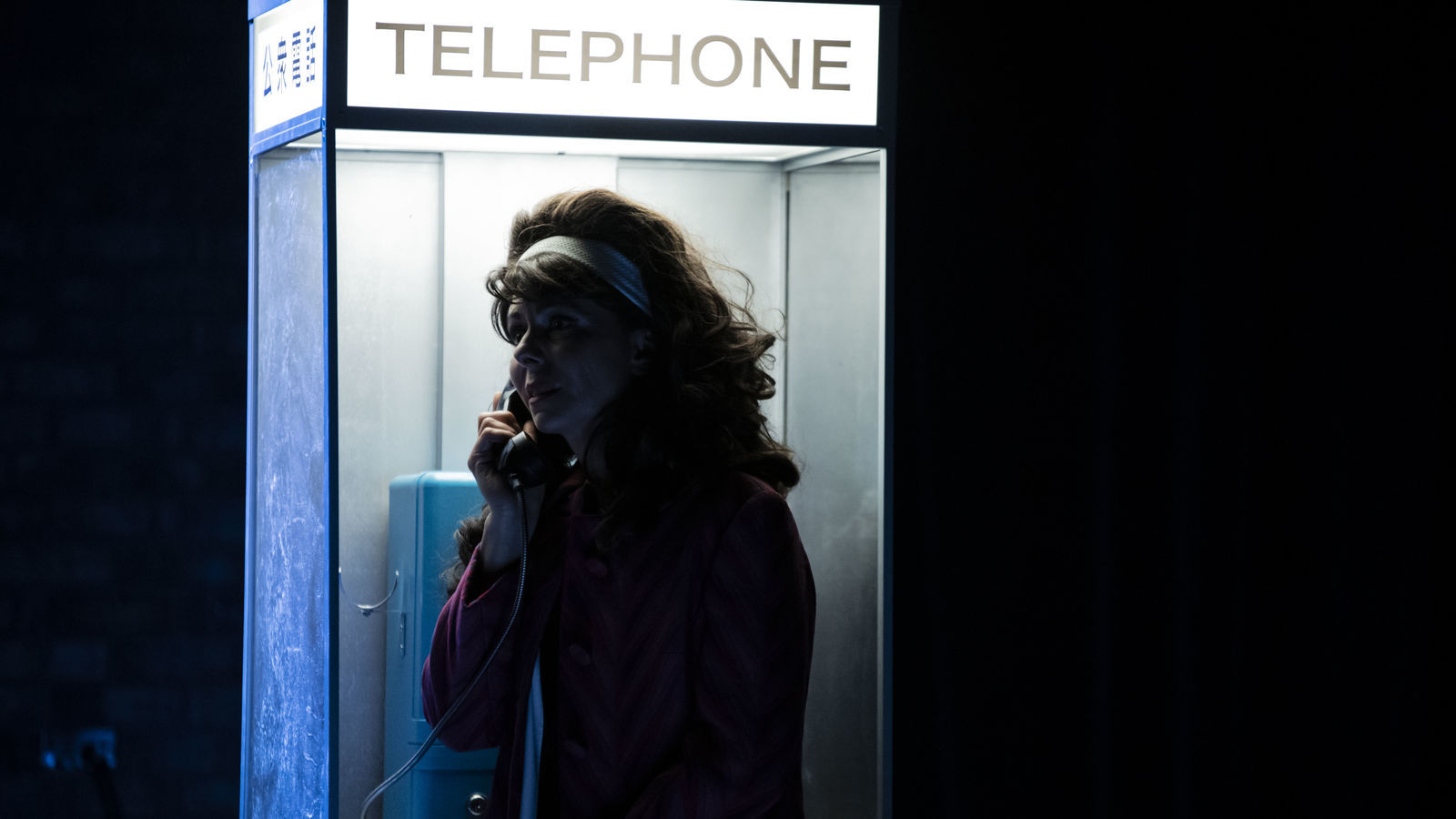
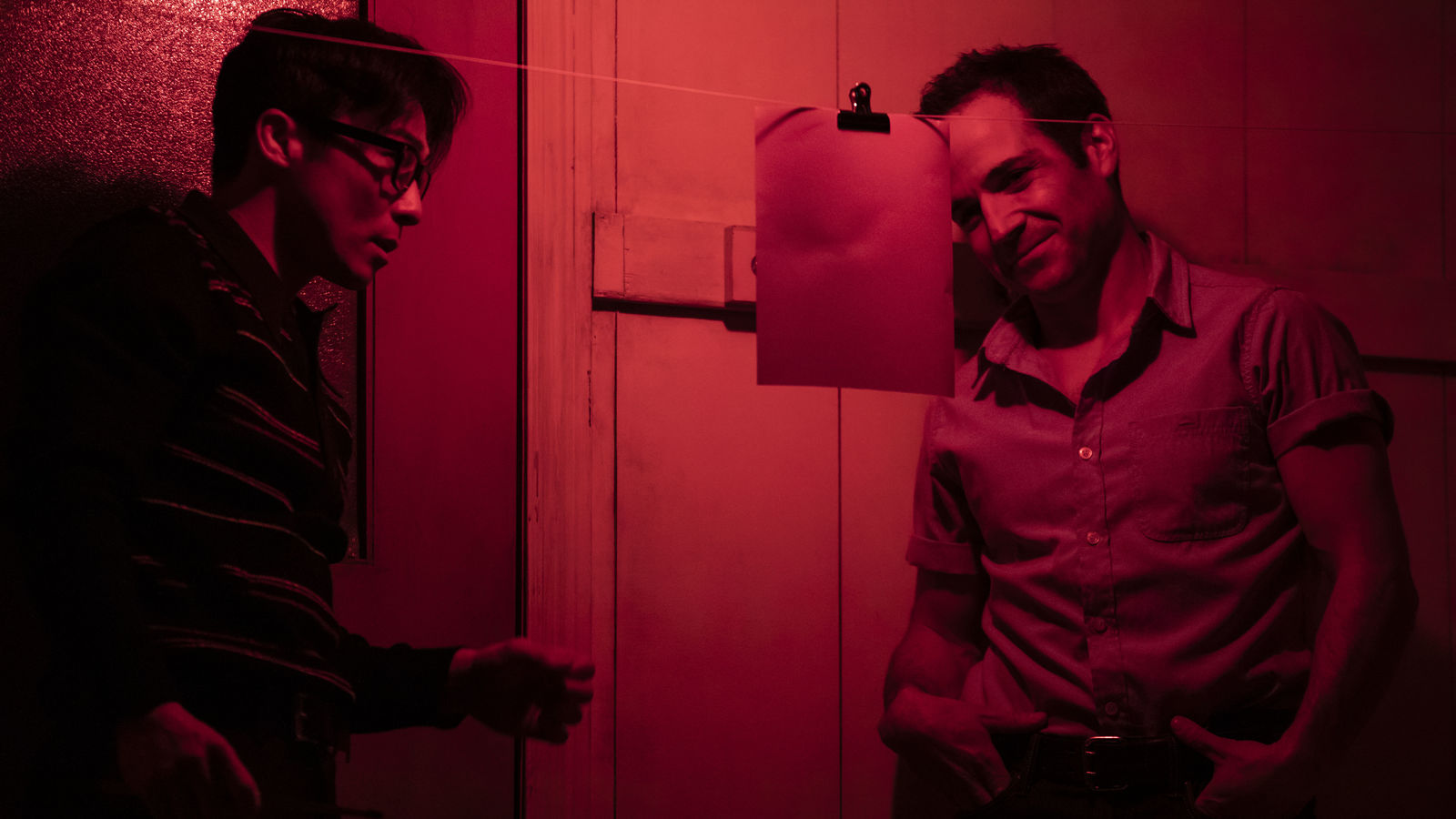
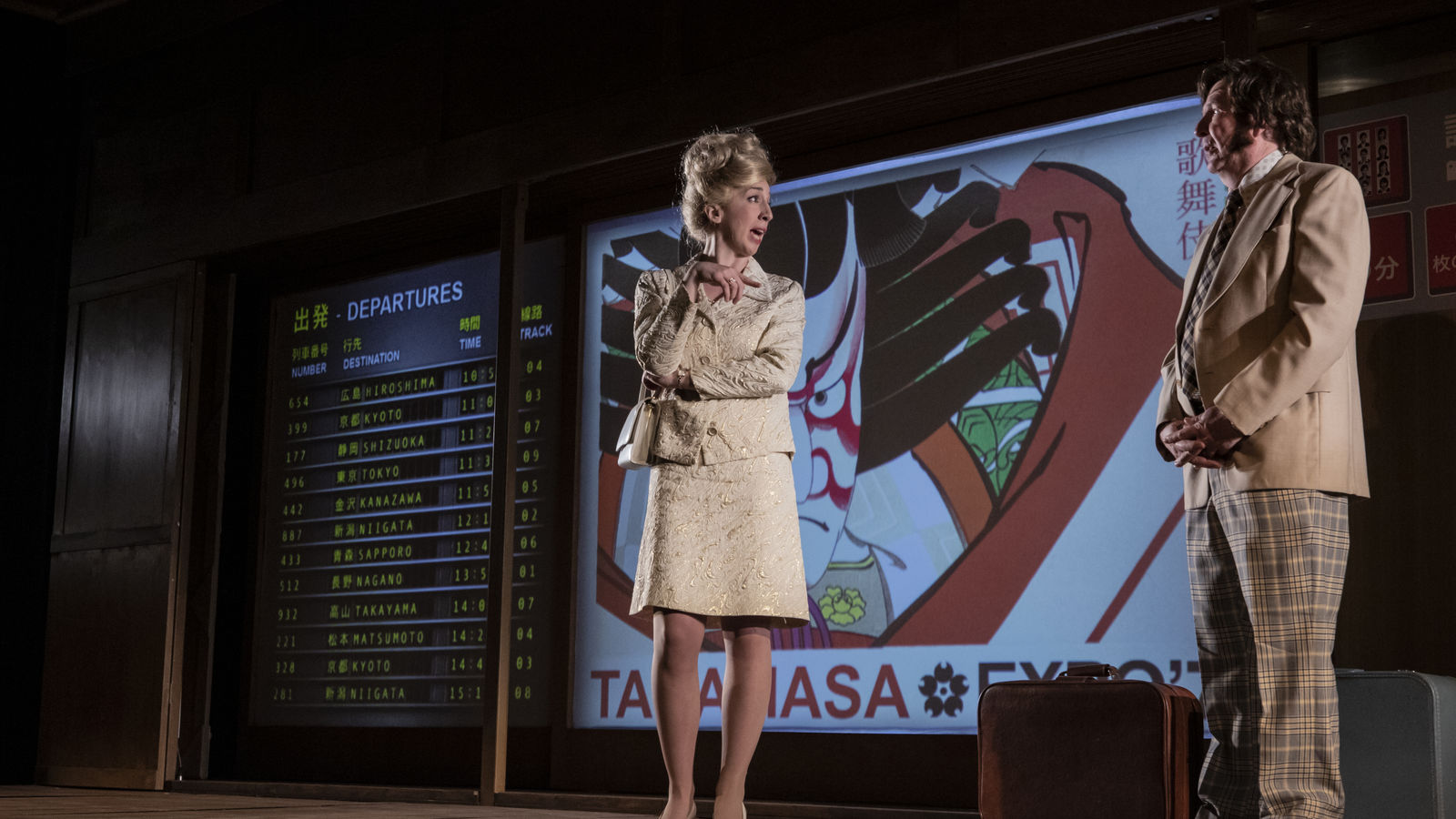
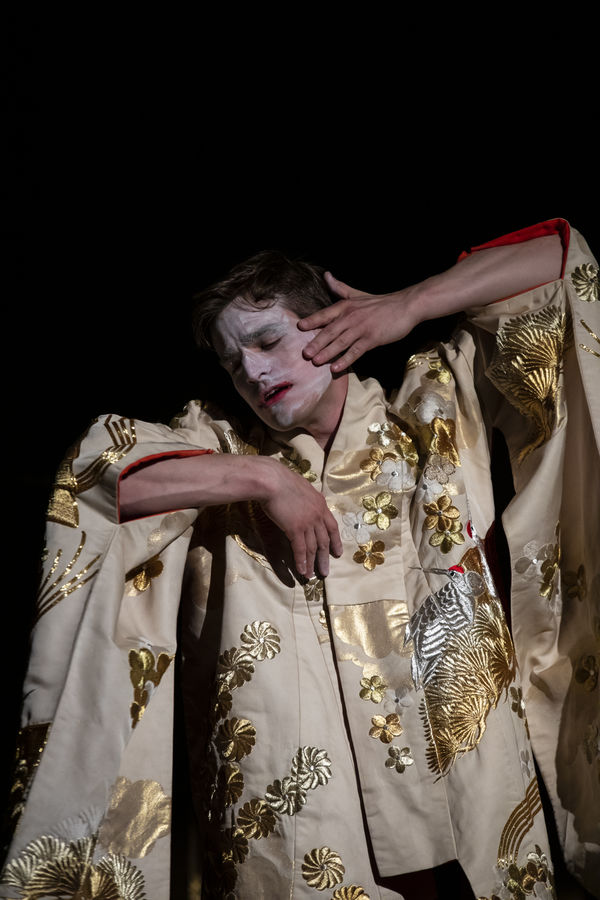
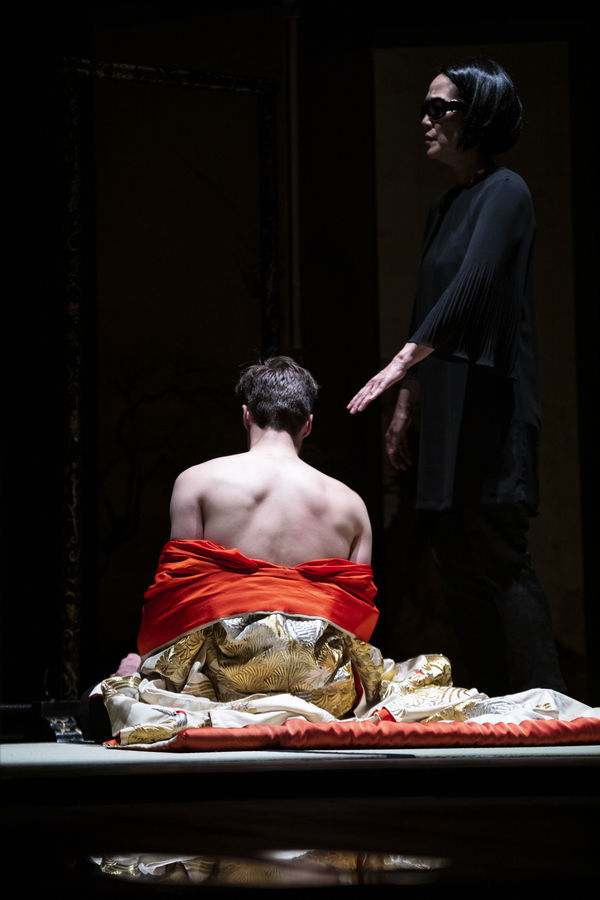
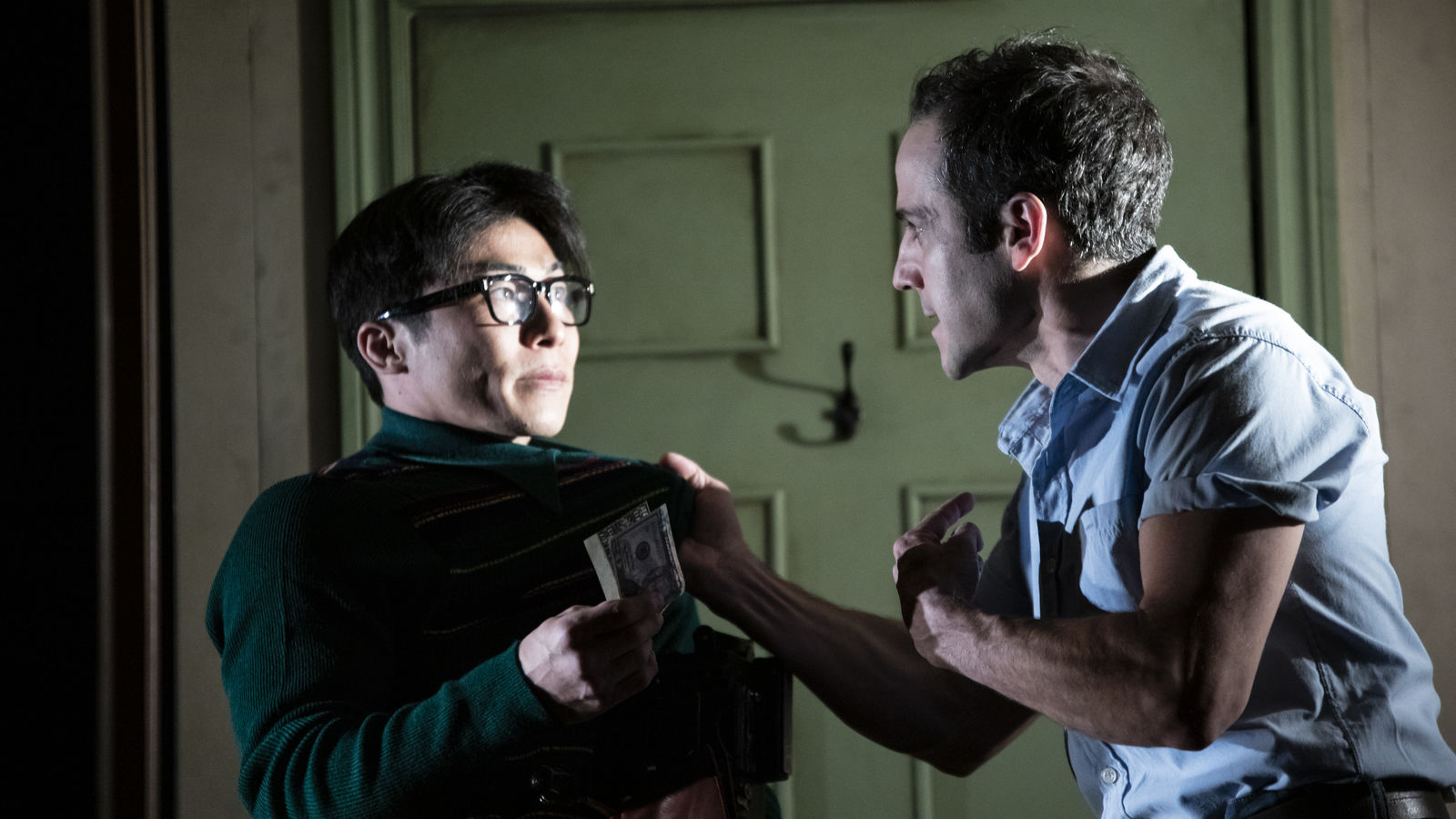
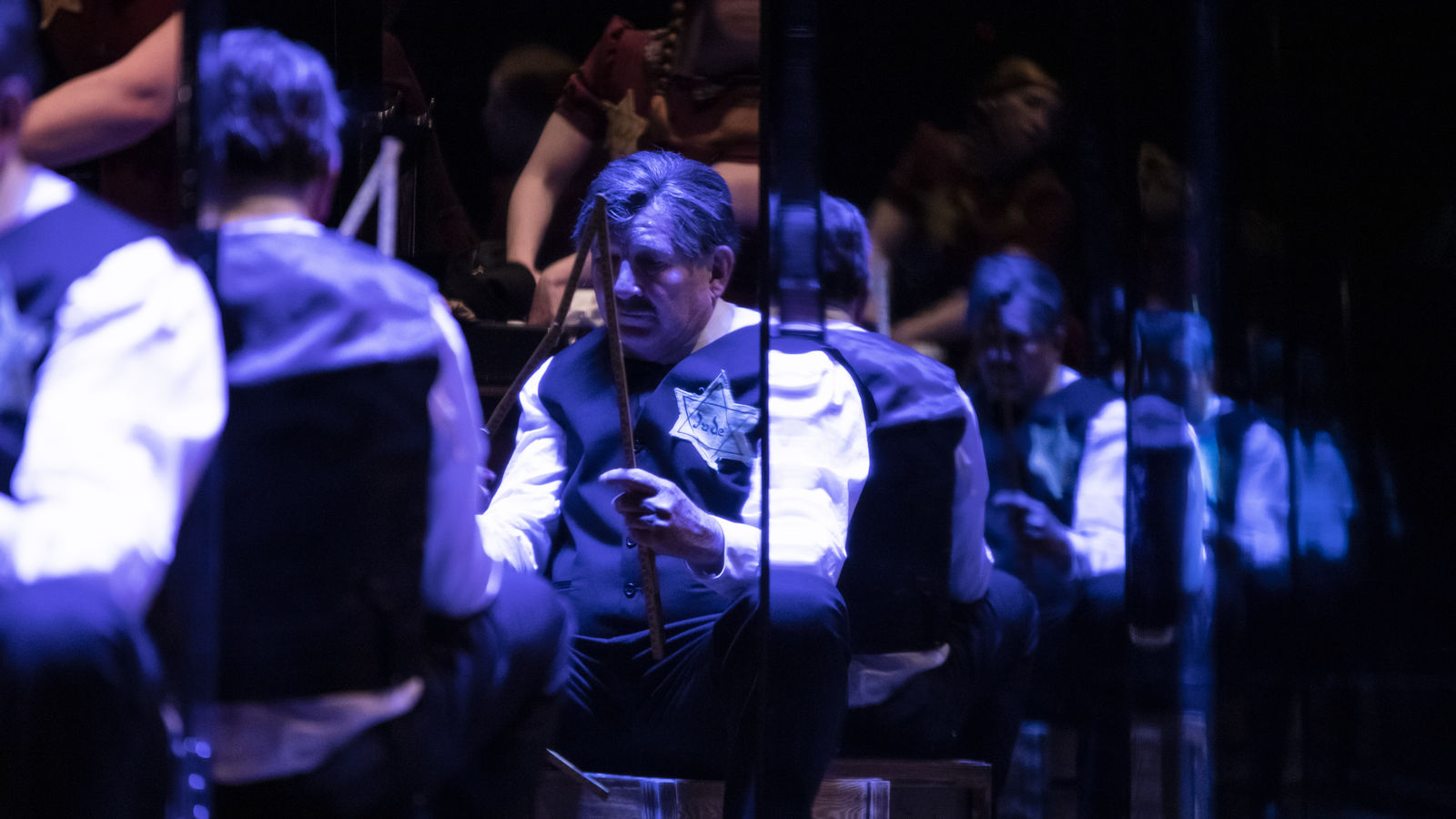
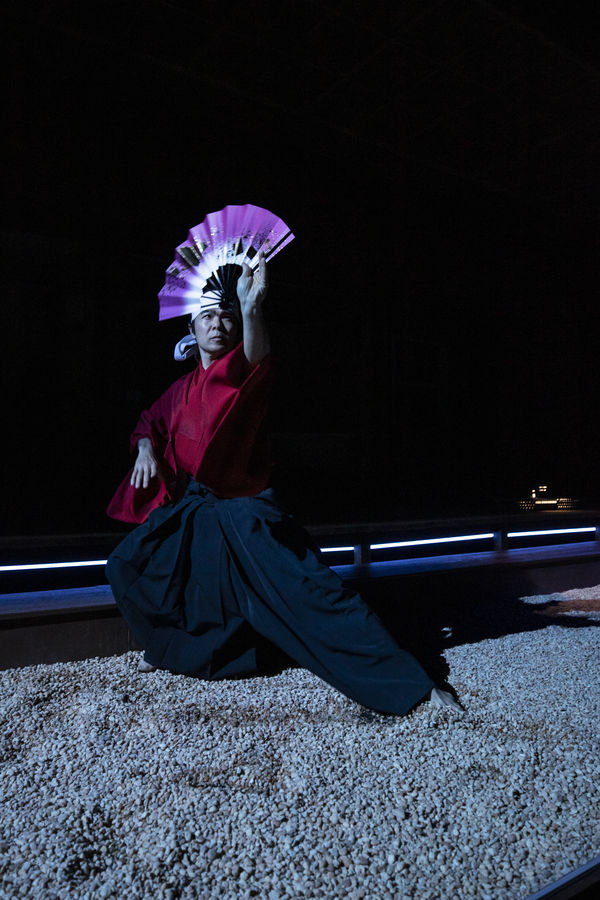
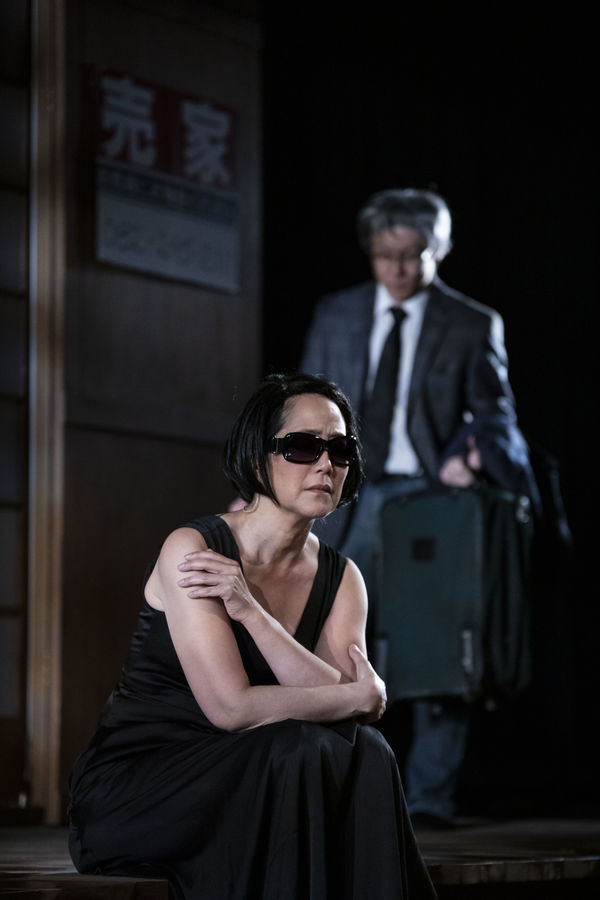
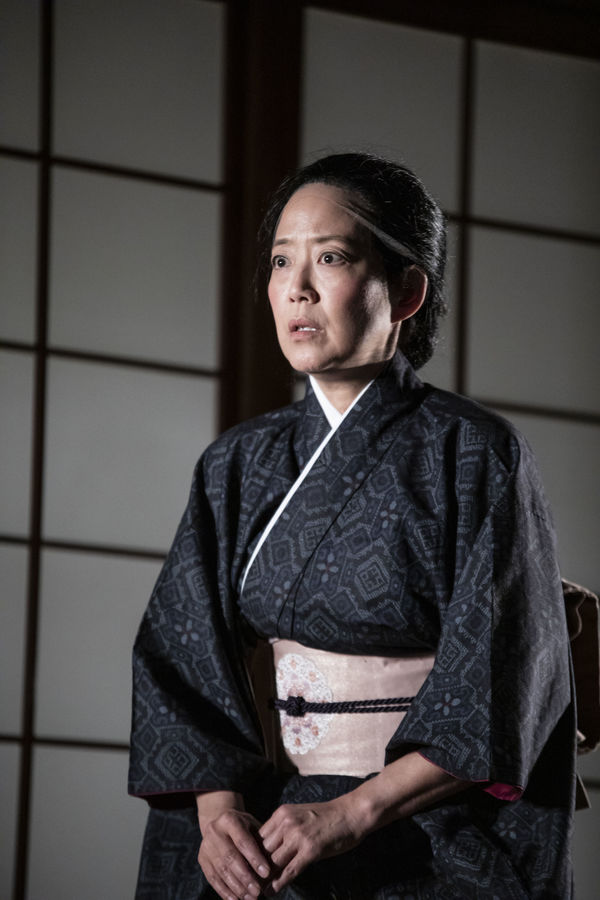
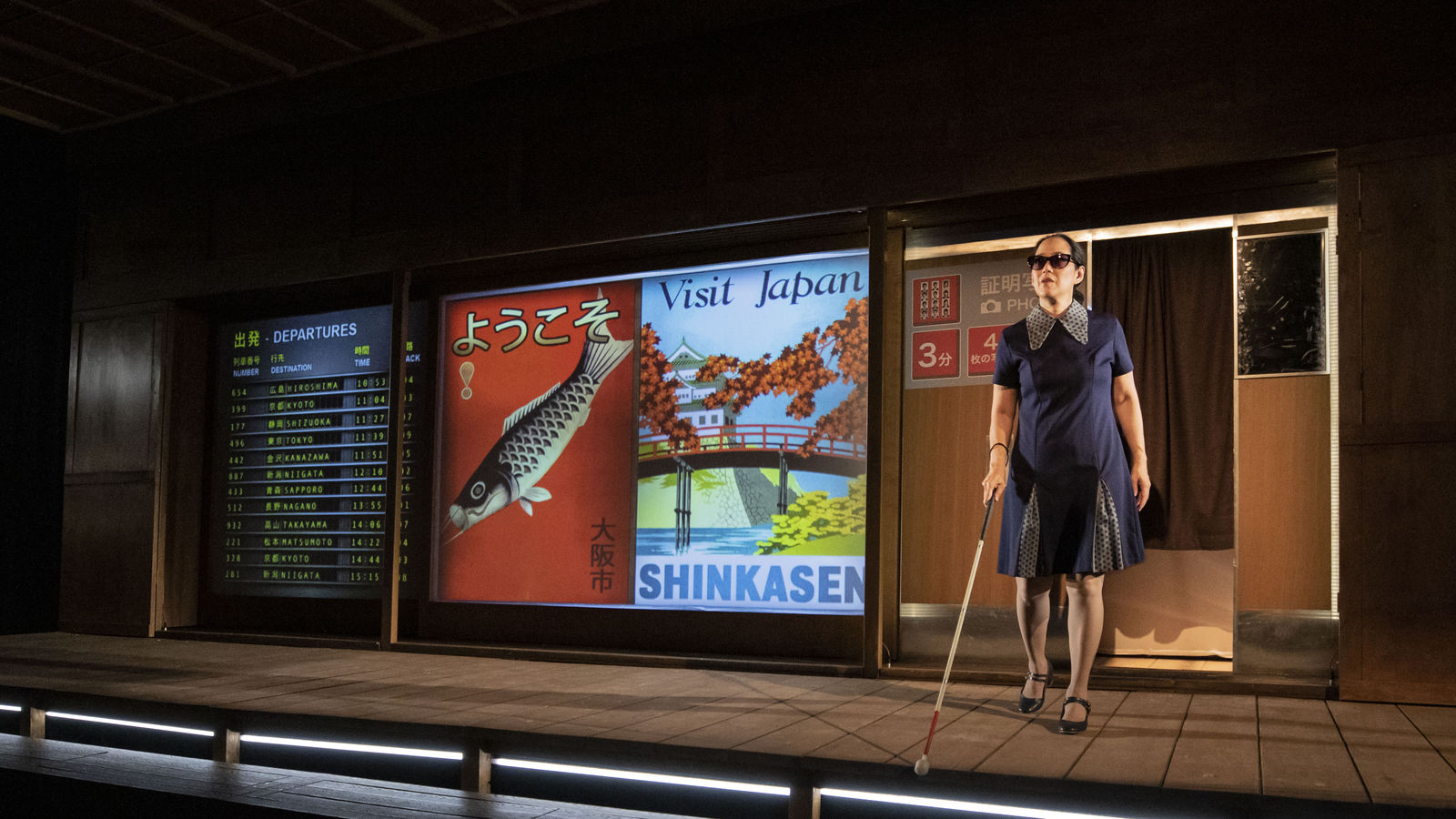
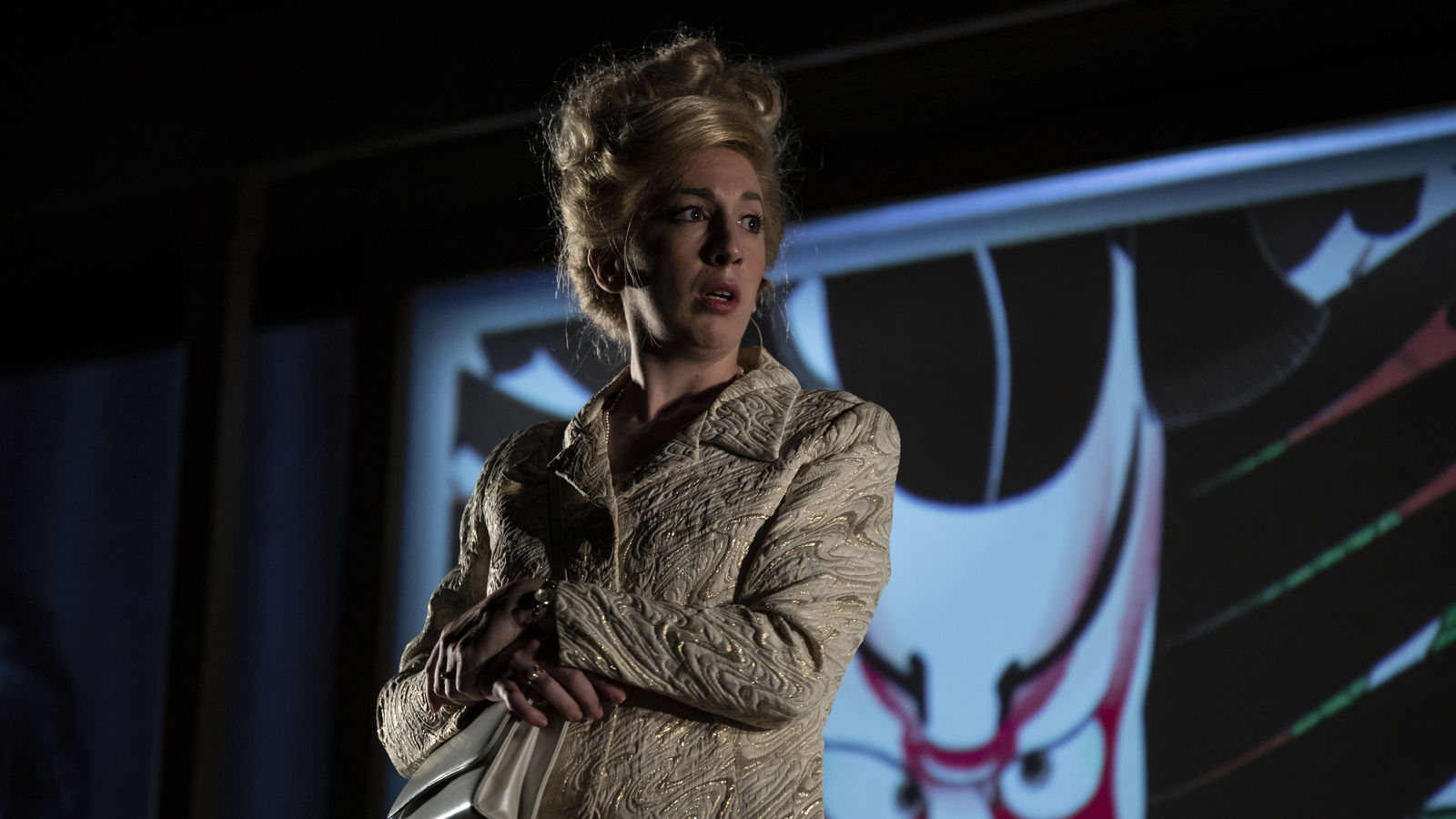
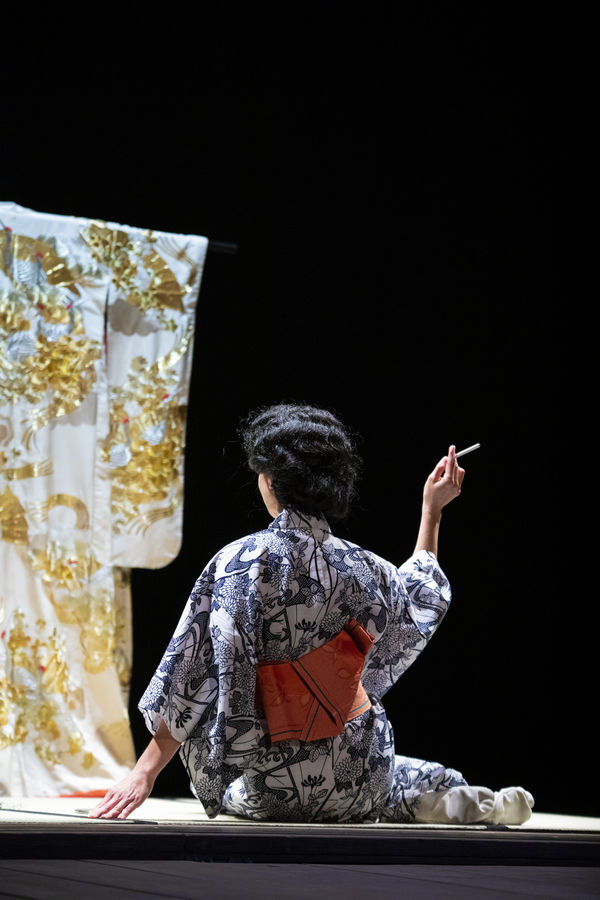
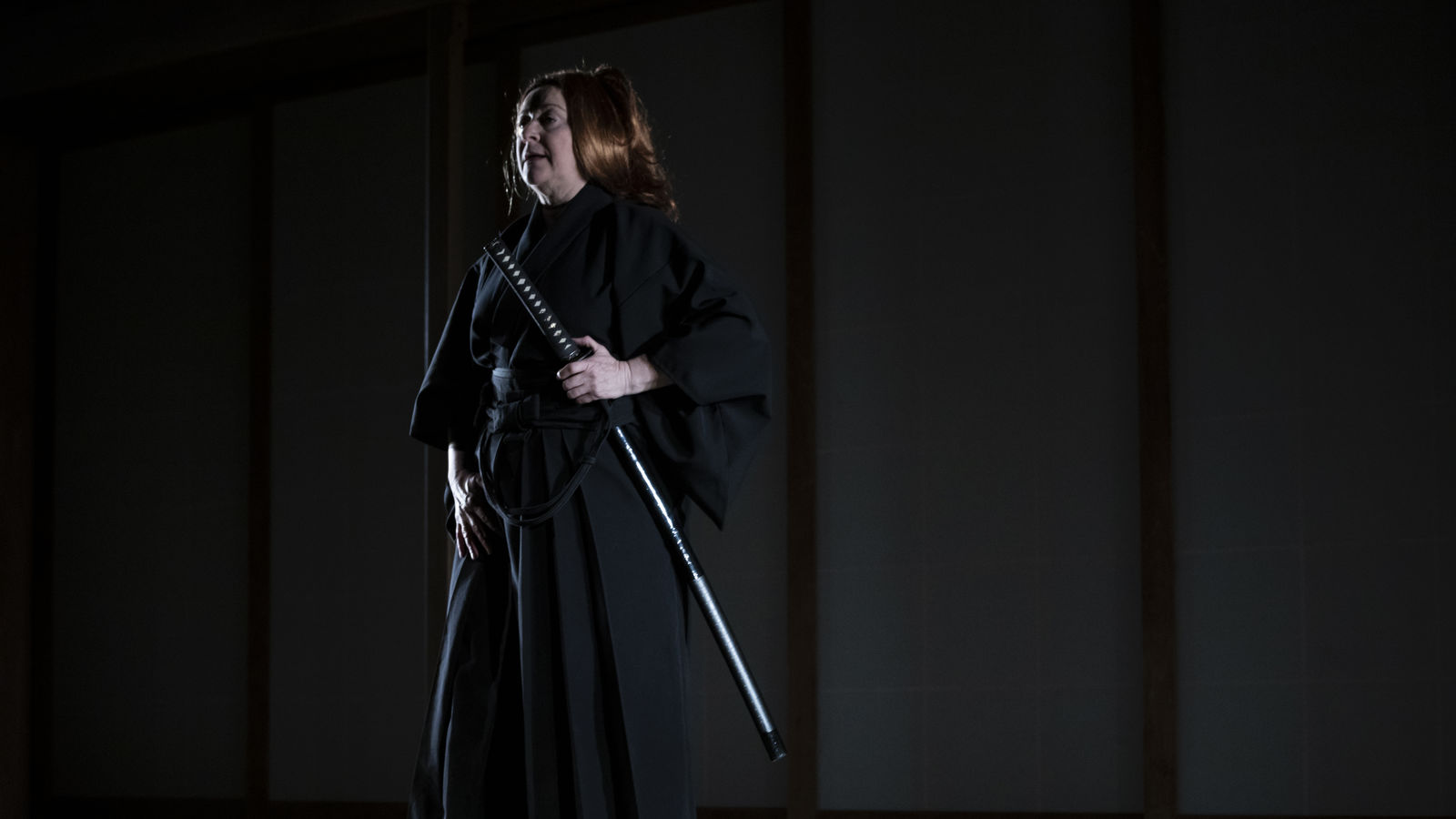
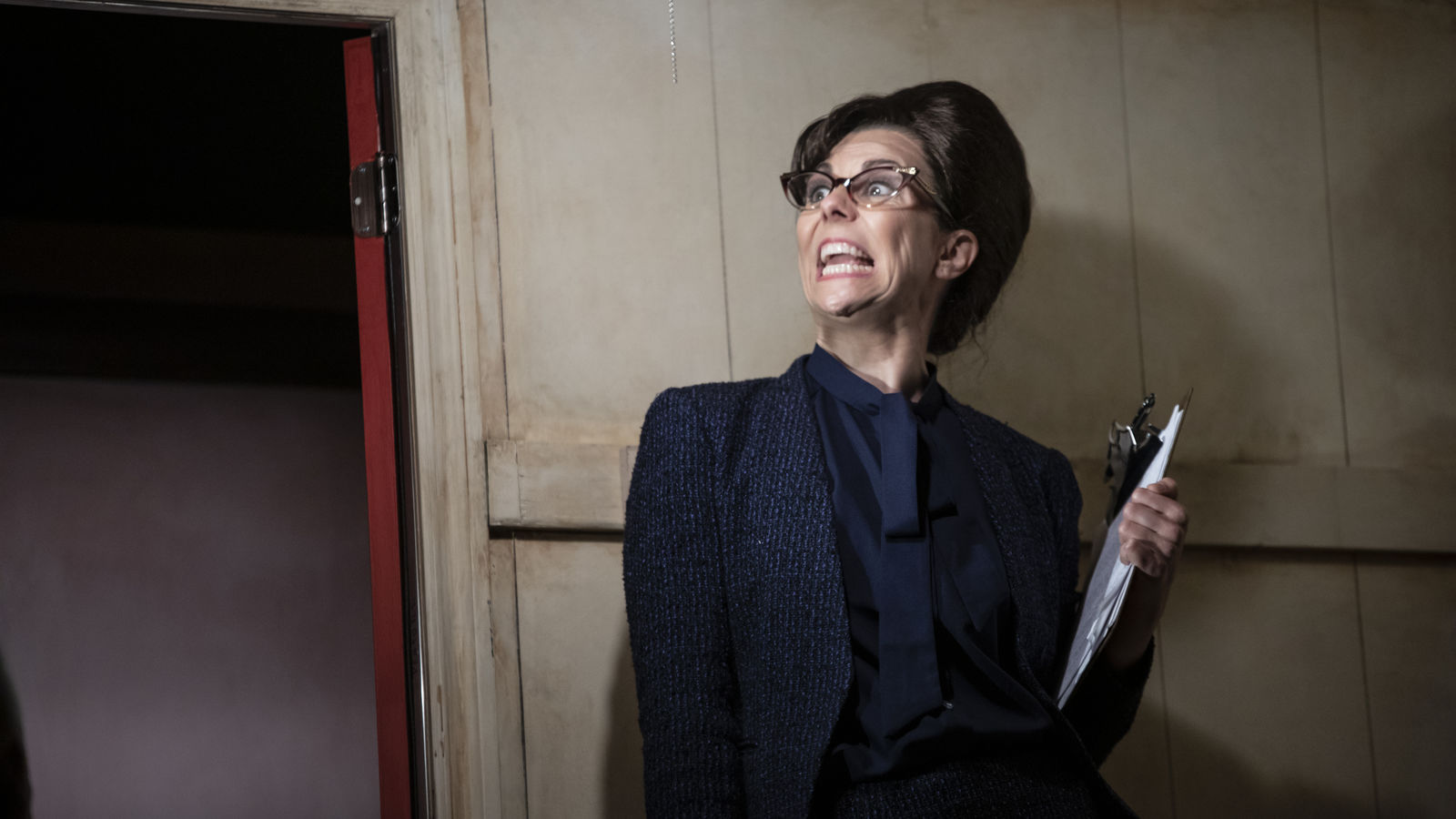
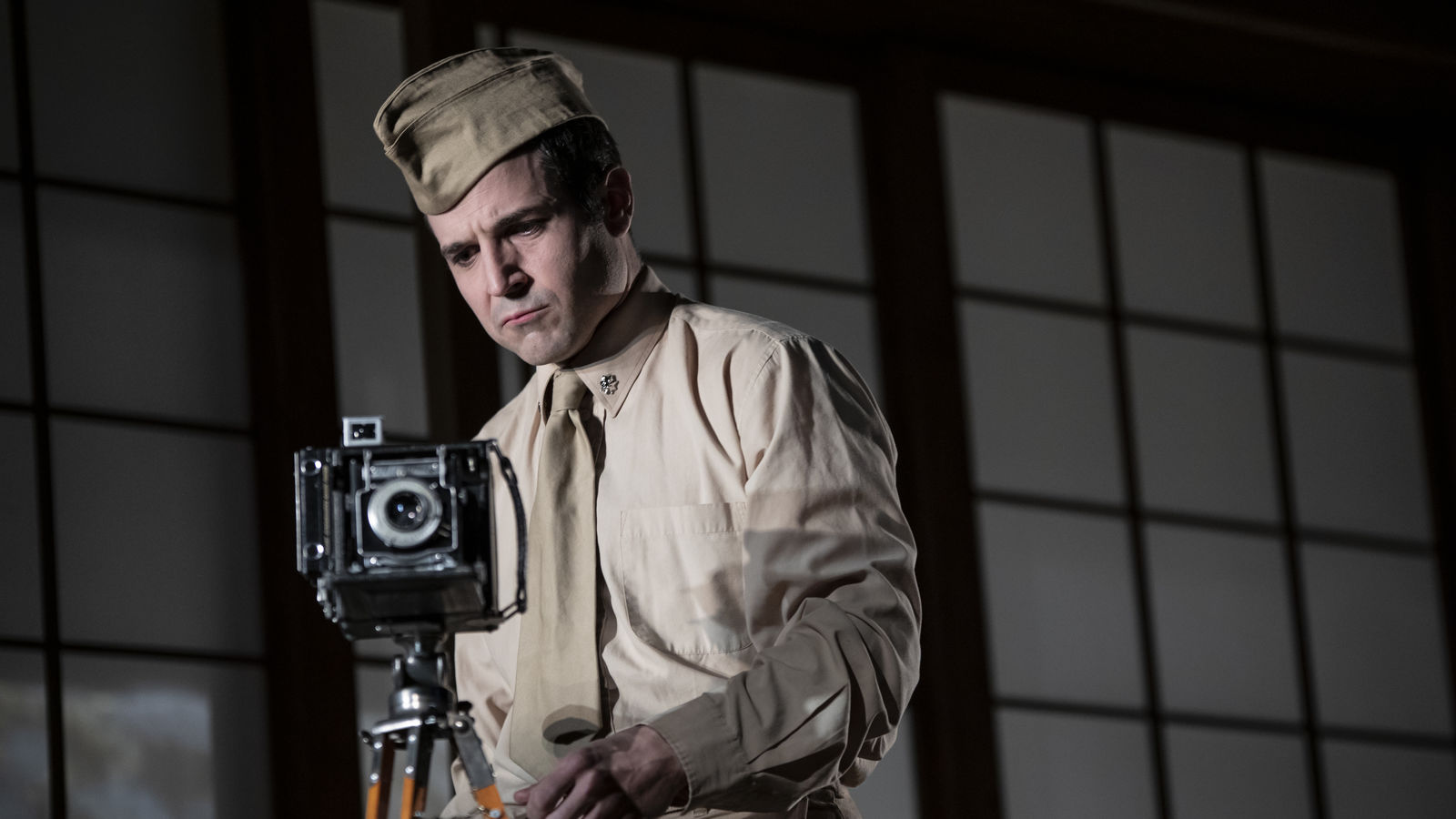
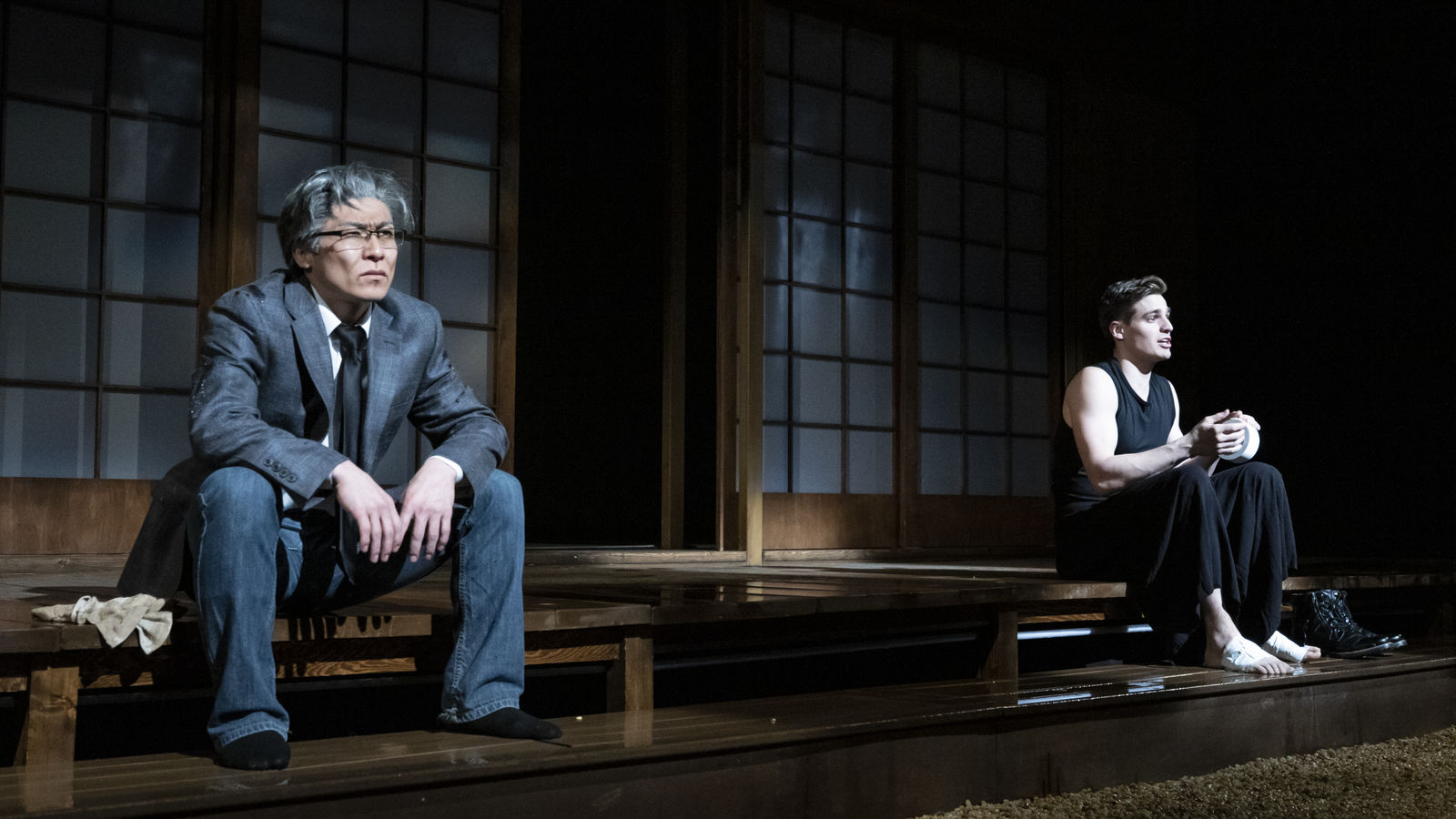
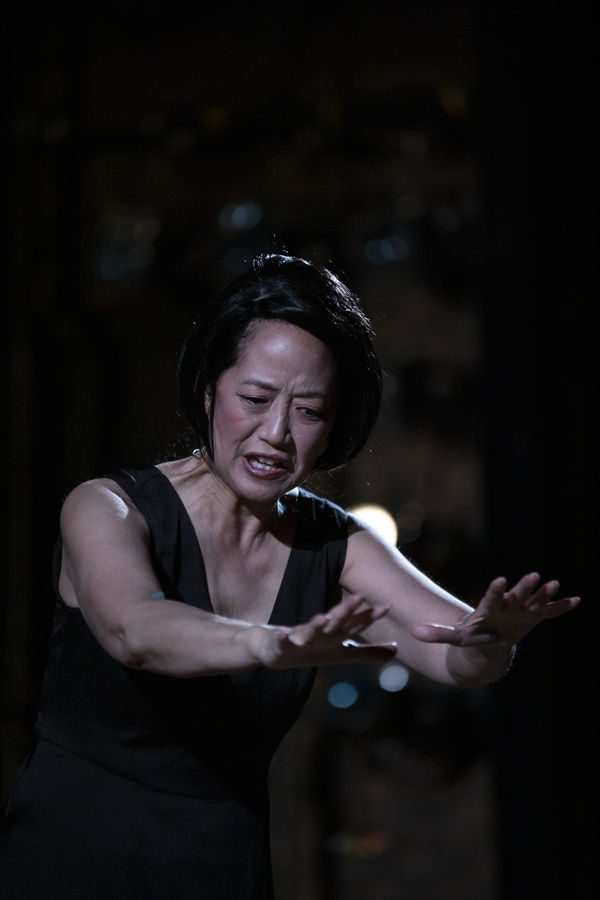
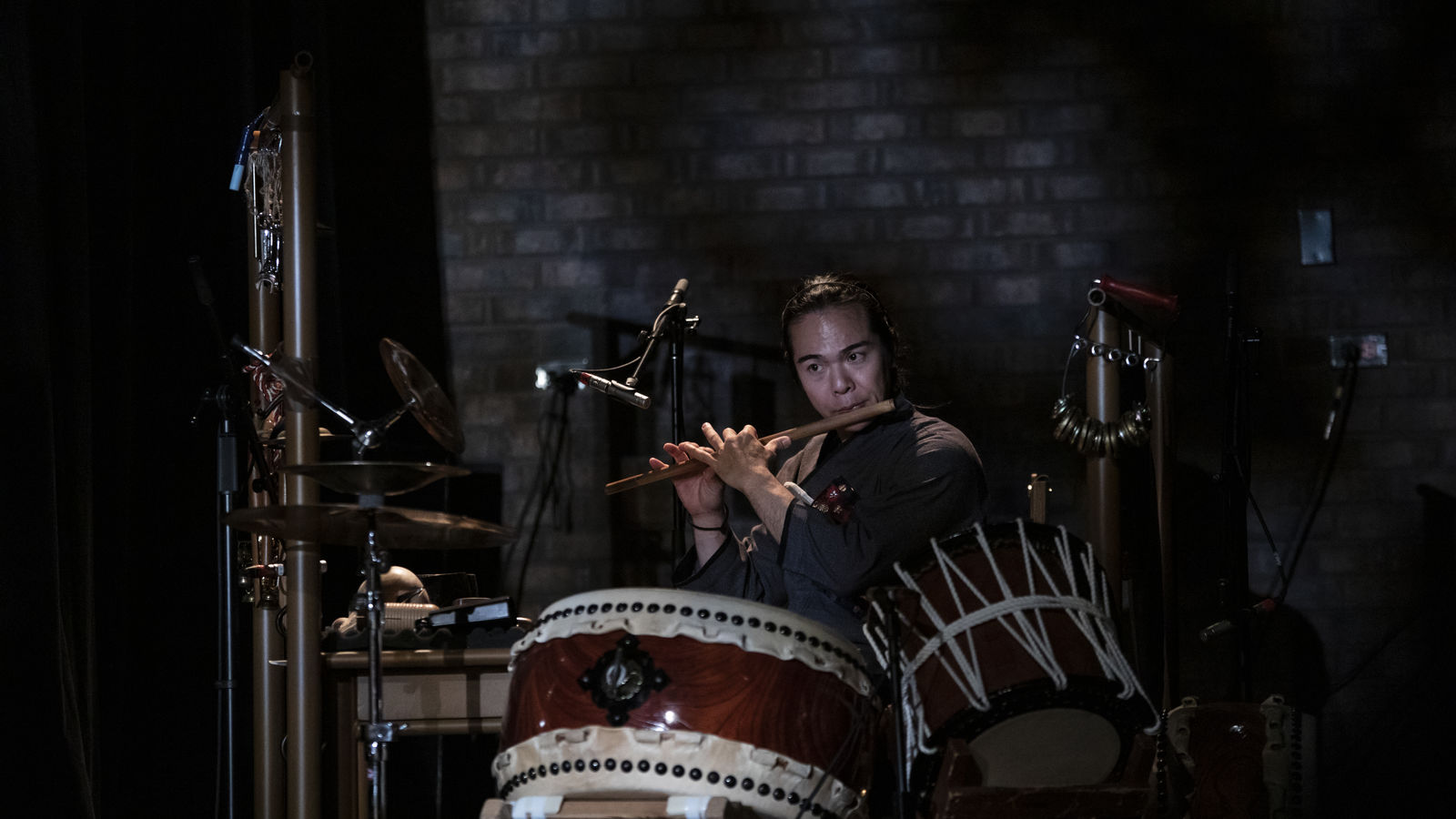
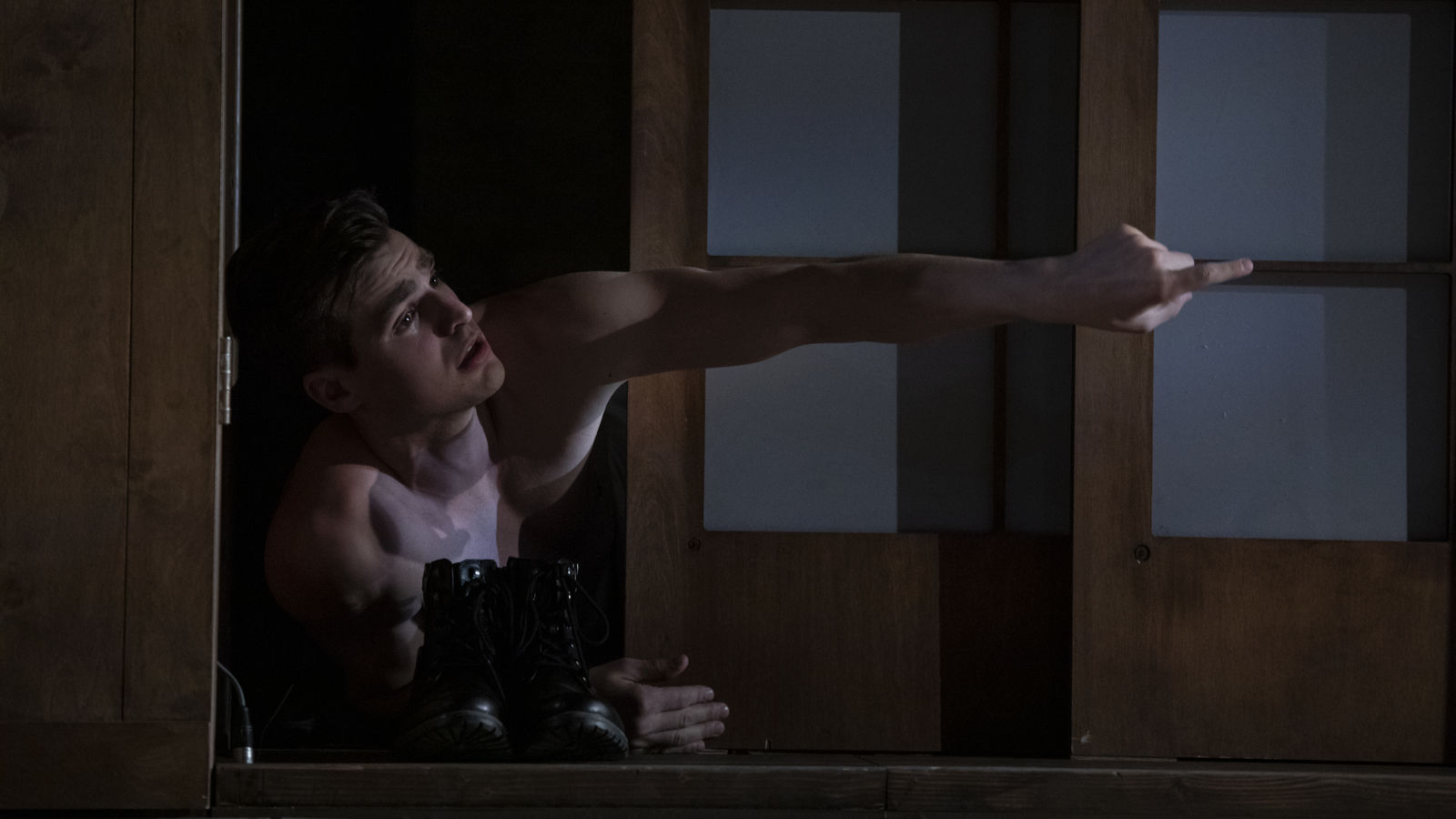
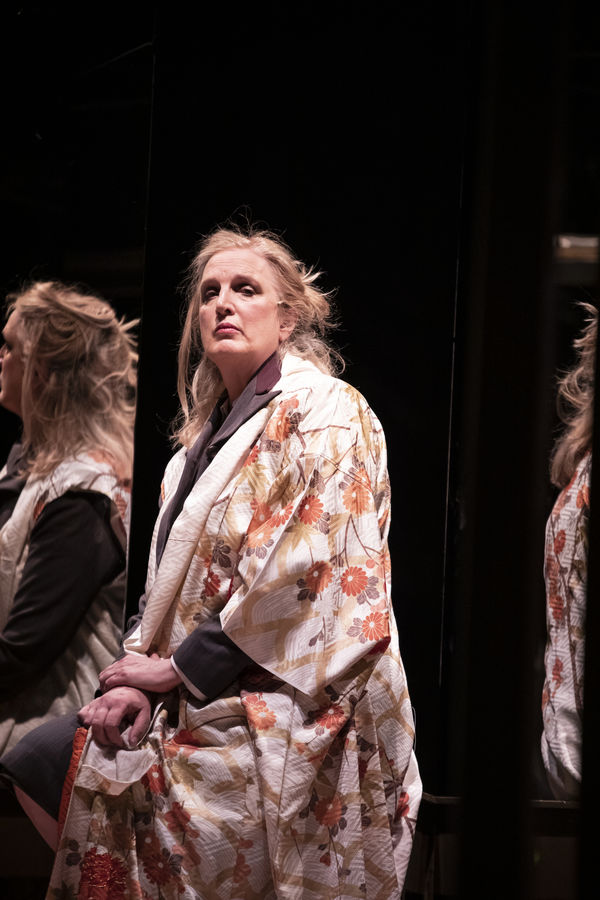
Robert Lepage’s Works of Memory. A Retrospective at the Schaubühne
by Joseph Pearson
03. April 2022
This year’s international festival at the Schaubühne, FIND, has Robert Lepage as its artist in focus. Lepage might be an icon of not just Québecois, but international avant-garde theatre and cinema, yet he presents as the most natural, relaxed, and friendly person you can imagine––affable and thoughtful behind his heavy-set glasses. Often, one observes how artists put on a persona of distanced importance to confront a competitive milieux. But just as often, the greatest artists dispense with mondain pretence and engage you directly.
We meet in what feels like a terrible place: a storage / practice room behind the Schaubühne studio––a location I had forgotten existed in the theatre’s innards, filled with stacked chairs and a rudimentary table waiting in the gloom attended by a bottle of still water.
But Lepage motions to the perfunctory space, telling me: »Something really moving happened here. We have been using this room during the past days to rehearse »Seven Streams of the River Ōta« and suddenly––when we were really into it, working with the lines––an actress recited a monologue about the Hiroshima disaster, about a man who is blinded explaining how the fire enters his eyes: »don’t you see, the buildings with people trapped inside them, burning.« And we were taken with this moment. We never tried to make the connection to what is happening in Ukraine. But it was there. In a seven-hour show, there are many such moments.«
Like in any interview, I have come prepared with my theme, and it is precisely this: how do Lepage’s works, appearing in a retrospective for FIND 2022, necessarily resonate differently as times change, faced with different mentalities, new audiences, and new generations? »887« is from 2015, and a reflection on the director’s childhood and working-class struggles during the political awakening of Québec in the 60s and 70s. »Seven Streams of the River Ōta« was first produced between 1994 and 1996. It is an endurance piece of seven hours that considers the tragedies of the 20th century, from the concentration camps, to Hiroshima, to AIDS. It now plays with a new vigour on the Berlin stage, with war, only 800 km distant, having returned to Europe. Lepage says the significance of »Seven Streams of the River Ōta« today is present, but »without trying or justifying«. Nonetheless, the audience cannot help but think about an atomic threat differently from one year ago.
The last time that »Seven Streams of the River Ōta« was performed was in London at the very beginning of the pandemic, in March 2020. Now, it returns at what feels like a hiatus in the emergency. He tells me that the first thing his troop, Ex Machina, noticed, when recently viewing a video of that production, is how »through the whole thing, people were coughing, in a packed house, with no masks. You hear all the coughs and think: what the fuck!«
I suggest, »Just as the theme of atomic warfare and its effects on civilians resonates with the present, frightening, geopolitical situation, so too does the question of pandemic. »Seven Streams of the River Ōta« is also about AIDS. We have all been through a different pandemic these past years. Can we make comparisons?«
Lepage tells me, »Thinking of the presence of the AIDS crisis in the show, you need to consider that when we first wrote »Seven Streams of the River Ōta«, in the early 90s, AIDS was killing in great numbers. It is an »exercise de mémoire« to show a situation in the early 90s when we talked about »exit programs«, palliative care, hospices… when we were learning how to die. Now, a lot of people have since forgotten or don’t know about these times. They are maybe people who became sexually active in a different world, or–– at least in some parts of the gay community––describe HIV as an »inconvenience«, without reflecting how AIDS was once a death sentence.«
»How then does it feel to reflect on this after Covid?« he continues, »Of course, you can’t really compare the two: but the end result is that elderly people are now seen the way people looked at the gay community then: their potential to get infected and die. At the same time, you can’t direct or redirect these themes. They are there: you will draw your own conclusions. It would be very pretentious to make too close a comparison, to say, as a director, »that’s the reason why«. All I would say is that the show has a lot of potential for triggering reflections, even when we find ourselves now in a different place.«
Lepage has already spoken of his work as an »exercise de mémoire«, or a memory exercise (a deceptively difficult concept to translate to English as it suggests both »the work of memory« and the ethical imperative to remember). He expands: »It struck me that’s what we are good at: theatre as the sport of memory. The first compliment that you are given when you perform is »what a memory you have!« It is about making people remember and placing something in their memory: one they can experience through their senses that they might not experience through books. It became my thing. Actors, performers, poets, chansonniers, opera singers, bards can be the carriers of memorial culture––even when a culture is being erased. You feel you have a purpose: as someone who reacts, as a performer, whose role is to refresh, remind, as history comes back to the surface.«
»But when you revisit a production––like »Seven Streams of the River Ōta« or »887«––years later, do you feel you need to make changes?« I ask.
‘You will have to repaint, take the dust off.« And he makes a comparison to how his company Ex Machina rebuilt their rehearsal and theatre space in Québec City. What was essentially a derelict site, where they first improvised »Seven Streams of the River Ōta«, was renovated and beautifully restored. They revisited the first version of »Seven Streams of the River Ōta« in the same location, but with the theatre space renewed.
He explains, »But the thing is, with »Seven Streams of the River Ōta«, we didn’t do any rewriting. When we took it out of the mothballs, we simply sandpapered the edges a little––«.
»And what does it mean to »sandpaper«?« I ask.
»In the case of Ex Machina, thirty years ago we weren’t anti-literature, but we did not come from literature. We were interested in the theatre of mime, masks, commedia dell’arte, Pina Bausch. That’s what we were into. It’s also when we did »The Dragon’s Trilogy«, which propelled us. The dialogue was of little importance, the written word was simply invited in. All this to say: since then, we’ve learned to write, to work with the sense of telling a story, with dramaturgical structures, and how they work, and when to break them. To know when the stakes are not high enough, or when things are not well-structured. That is where the sandpaper stuff comes in.«
»I think you are being rather hard on yourself… you probably already knew how to write!« I laugh.
»Well––not to be coy––let’s just say we became better writers because our knowledge and education got better. The audience and the reviewers inform you about what they think you are talking about. You tour the world. There’s dialogue. You revisit your text. You correct little things. Also, one thing I noticed is the insecurity of our younger works, the tendency to repeat things. That there is so much redundancy. To be understood, you feel you need to repeat, and then twenty years later, you realise it’s redundant. Say it once and say it well!«
»You talk about an »exercise de mémoire«. We’ve talked a lot about memory but let’s talk more about the exercise. What is the exercise?«
»If I understand you correctly, it’s a question about what the difference is between the Ex Machina’s process and other groups’ processes. Let’s say we are doing a show about war––war in Ukraine, for example. We collect a group, sit around. All of us are of different ages, genres, classes, there are those with higher education or little formal education. We have different points of view and different takes on the subject matter. Now, normally, the process would try to reconcile these points of view and we would make a lot of compromises. But the problem is that the more compromises you make, the less interesting the piece will be. So, we never start there. We don’t even start with a theme, like Hiroshima. We start with something intimate instead.«
»For example?«
»For example, an anecdote, about which can all respond. When we started the »Seven Streams of the River Ōta« project, I had already been in Japan, and visited Hiroshima. Our guide had lived in Hiroshima all his life and was six or seven when the bomb happened, and he spoke to me about a young lady who had been disfigured horribly and was prevented by her clinic from looking at herself in the mirror, in case it would upset her. But she kept a shard of a mirror hidden under her pillow, which she used to put on makeup, and then she would rub off her lipstick so the doctors would not notice. Our guide said you can disfigure a woman, but you cannot take out from human nature the desire to be beautiful. The atomic bomb and its horrors never touched me as much as, suddenly, that story. That is what I get from people around me. From an anecdote, you start to play with an idea––one that makes it all the more human, truer. That’s what we do. We don’t start with a reflection on atomic war. The reflection happens instead on its own.«
The Seven Streams of the River Ōta
(Québec)
von Ex Machina / Robert Lepage
Regie und Ausstattung: Robert Lepage
Saal A
Premiere war am 02. April 2022
Mit dem Aufruf des Videos erklären Sie sich einverstanden, dass Ihre Daten an YouTube übermittelt werden. Mehr dazu finden Sie in unserer Datenschutzerklärung.
Bei Klick auf die Schaltfläche "Akzeptieren" wird ein Cookie auf Ihrem Computer abgelegt, so dass Sie für die Dauer einer Stunde, diese Meldung nicht mehr angezeigt bekommen.
Pearson’s Preview
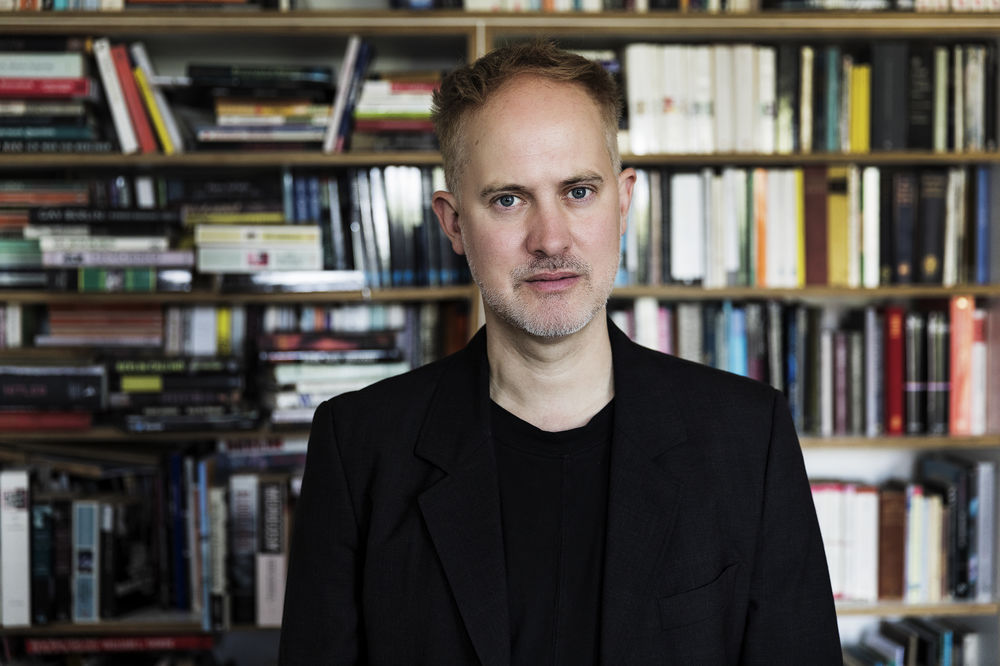
Archiv
Dezember 2017
Hallelujah Neuruppin! »fontane.200 an der Schaubühne«
Oktober 2017
Schöpferische Unruhe: Milo Raus »LENIN«
September 2017
»Kein Piña Colada«Herbert Fritsch, Volksbühnen-Vertriebene und ein riesiges Luftschiff
| Seite 5 von 10 Seiten |
